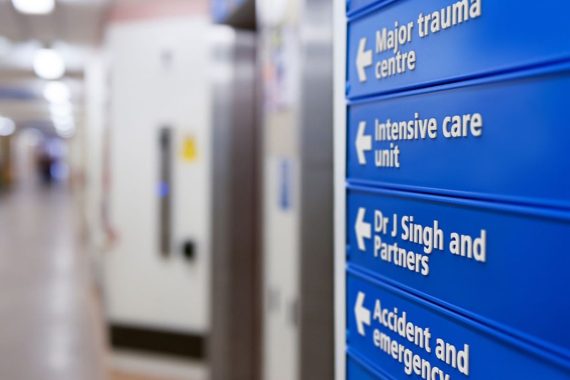It feels like a long, long time ago that Sajid Javid was health secretary. We have had three changes of secretary of state since, and at least one shambolic vision for the future of general practice.
So it might exercise your memories to recall his big plan for general practice; for hospitals to take over the running of GP practices.
Now, in fairness, he never stated such plans on the record. Instead, it was a story in the Times in February, though it wouldn’t be hard to guess who leaked it to them. The headline that ‘GPs nationalised in Javid plan to reduce hospital admissions’ may have been a little overblown, but the article reported on a plan by Sajid Javid to review primary care.
According to the story, Mr Javid was impressed by what is happening in the West Midlands, where the Royal Wolverhampton NHS Trust is running eight practices.
And Pulse revealed that NHS officials had made a trip in November 2021 to the trust, to see how it was working.
A think-tank report – backed by Mr Javid – has also since recommended that the GMS contract be phased out by 2030, with the majority of GPs employed by scaled providers such as hospital trusts.
With these ideas brewing, Pulse looked into how these hospital-run services were working. We found that there were such models in Northumberland, Gosport and West Cheshire.
The main feeling among GPs was a somewhat surprising one… that they were fairly popular. In Wolverhampton, GPs reported that there was no heavy-handedness from the trust when taking over practices, nor any wholesale changes imposed with regard to how the practices are run.
In Northumberland, the Northumbria Primary Care Ltd, set up by the Northumbria Healthcare NHS Foundation Trust as a wholly-owned subsidiary, now runs seven across Northumberland and North Tyneside. The LMC credits this model with saving a number of practices that were on the brink.
And in Gosport, four practices have different roles and work as a system. One practice houses a same-day access service, two offer routine and priority GP appointments, and the fourth focuses on long-term care. All calls go into a telephone hub staffed by a care navigating team. According to the group’s medical director and GP, the model ‘supported resilience and the ability to deliver primary care in Gosport’.
However, there were caveats. All GPs say that the model doesn’t work for everyone. And most importantly, they have improved resilience for general practice in the area, but recruitment problems remain.
Pulse reported in August that Board papers published by the Royal Wolverhampton NHS Trust on 2 August said that it is struggling to recruit, with 4.8 whole-time equivalent GP posts currently vacant.
It might seem as though this is all irrelevant – since then, we have had Therese Coffey’s disaster of a plan and Steve Barclay having two spells as health secretary. Even without these changes, this was never an official plan from Mr Javid.
However, this is something to keep an eye on. NHS England has shown itself to be interested in the model. Meanwhile, all parties are looking for radical solutions to the crisis in general practice. This is a model that has worked for some practices, and it wouldn’t be a huge surprise if we see more of this in the coming year.
Plus, if 2022 is anything to go by, we may see Mr Javid back as health secretary within a couple of months.
















Put us all on consultant level contracts and that would be terrific. And maybe consider payment per session of clinical work…. And a considerably reduced rate for meetings/sitting on functionally useless panels and committees
I don’t see how we could be employed on the same basis as consultants. By and large being a surgeon in London is the same as being in Liverpool. You’re contracted to do the same amount of work. An inflamed appendix in Newcastle looks the same as an inflamed appendix in Nottingham.
This is not the same for general practice. There is no way you could attract GPs to a deprived inner city surgery for the same salary as a leafy green suburb with low levels of deprivation.
NOYN is spot on. It’s always anoyed me that working in a high-demand and high-pathology inner-city practice attracts a much lower partnership profit than being in a rural dispensing practice. (Yes, I know the latter will have some issues of theor own, but I never, in my working life, saw a doctor leave one of the latter, for one of the former. )